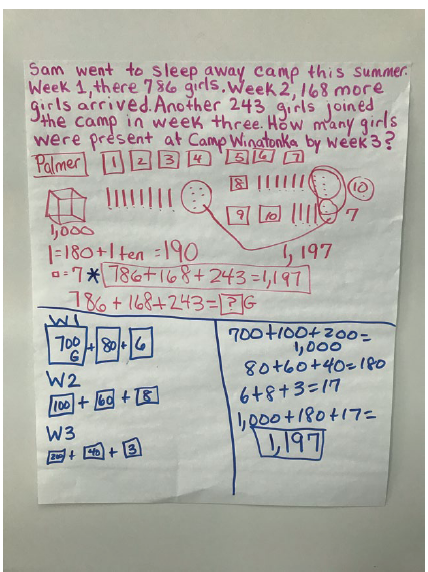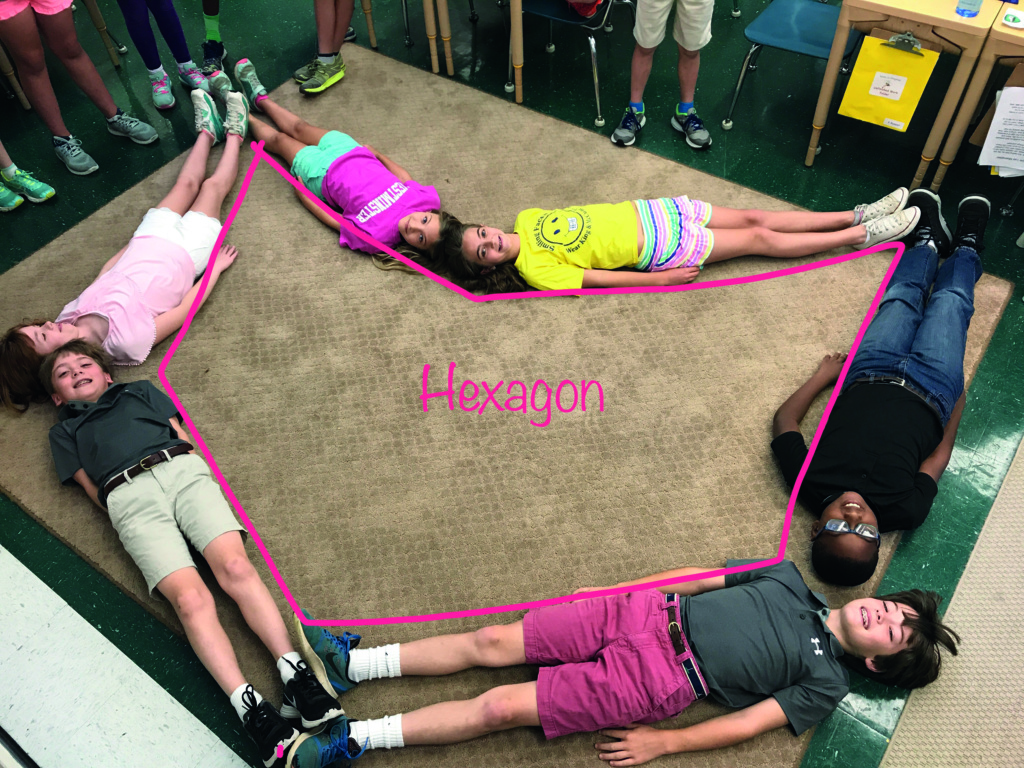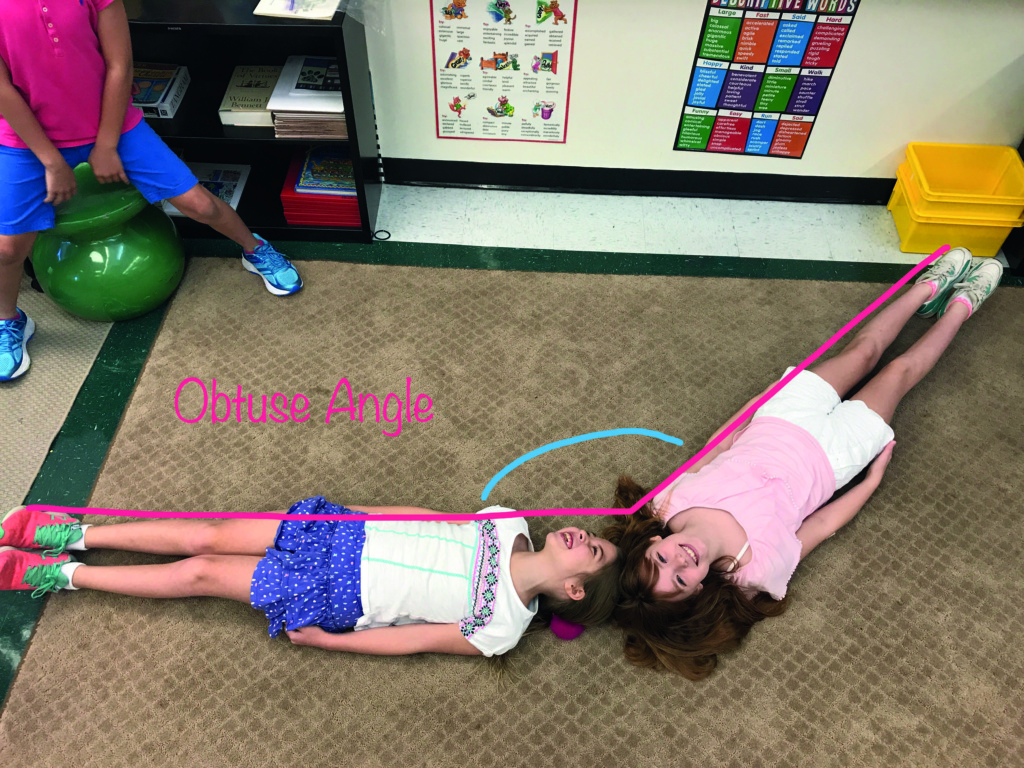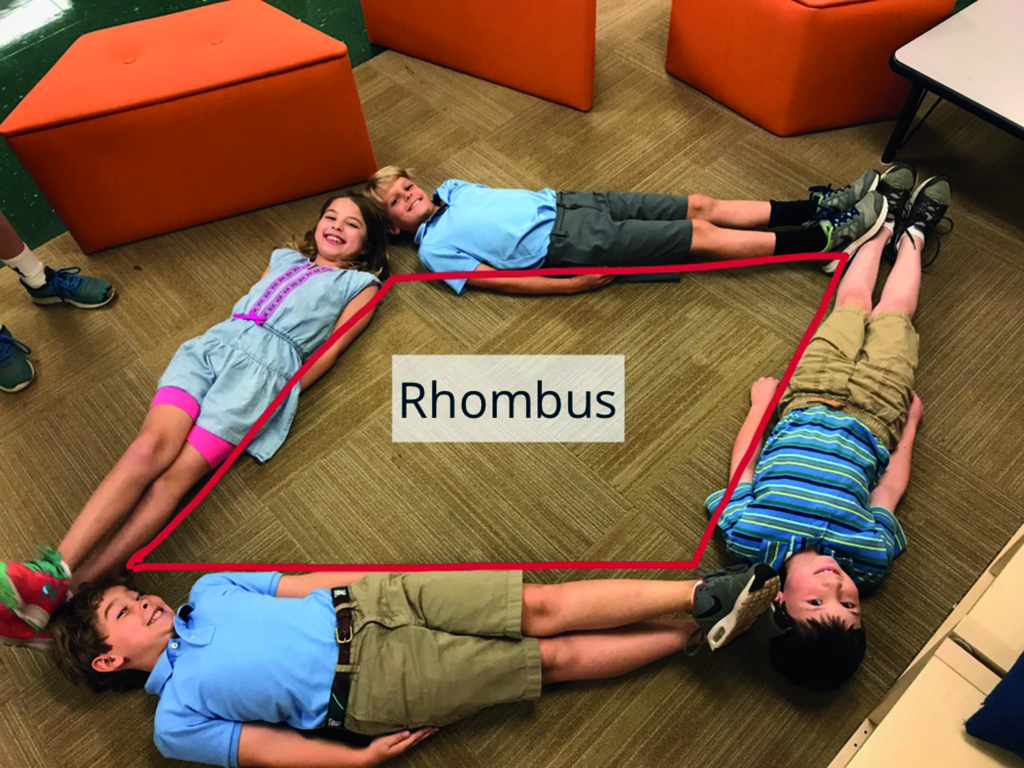
It’s time for maths. These simple words can cause heart palpitations for the brightest and the best, so imagine what it does for the student who has been told, “You are not a maths person”. What is exciting about taking out a textbook and practicing steps over and over without understanding? Don’t you think students notice the sadness in the teacher’s eyes, as he or she prepares to deliver the maths lesson they dread? How discouraging must it be to hear rants at home about the ‘terrible new maths?’ Mathematics has a bad reputation because there are not enough people who truly believe that mathematics is beautiful.
Before ever introducing a mathematical concept, teachers have a lot of baggage to unpack. It is important to kick off the year by letting students express their feelings about the subject. This can be done using a ‘Getting to Know You’ survey and/or having an open and honest discussion around this topic. Students need to know that they can be truthful without penalty, and that this information will be used to help design a maths program that meets their needs. Teachers need to take the time to share their own feelings and a little about their own mathematical journeys. It is vitally important that teachers teach maths from a place of positivity and wonder, even if it is not their favourite subject to teach. Providing an environment where it is safe to take risks and fail is critical to the success of the students. There needs to be a shift from a fixed mindset to a growth mindset in order to foster deeper learning.
How do we get students to fall in love with mathematics? Let them be in charge. Cognitively Guided Instruction (CGI) is a student-centred approach to teaching mathematics. Teachers build on what students already know and allow students to rely on their own intuition to approach problem solving. It is a way of using students’ natural number sense to guide instruction and deepen understanding. Teachers serve as facilitators, listen to students, ask probing questions and engage students in discourse and reasoning about their thinking and the thinking of others. Children are given the opportunity to learn from one another and make connections, which helps them to achieve conceptual understanding.
Children need to guide mathematics instruction and teach one another.
Instead of introducing the algorithm for adding with regrouping, create a story or scenario which requires students solve a problem. Provide a situation that is relatable and realistic, so students think more about solving the problem than adding numbers and following steps. Even younger children without experience with these types of problems will surprise you. If students are allowed to attack the problem without the constraints of an algorithm, they think more creatively and solve problems often thought to be beyond their reach. It is important for students to have access to all types of manipulatives, and that the use of them is celebrated, not reserved for ‘strugglers’. All students should be encouraged to create visual representations and find multiple strategies to show their thinking. Students need an opportunity for productive struggle, so DO NOT rescue them if it gets hard. Encourage them and ask questions that might help them think of different ways to approach the problem. The teacher’s role is to observe the process and make note of strategies that should be shared with the group during the discourse.

Children need the opportunity to engage in maths discourse. While it may be tempting to lead a discussion around the great maths thinking you have witnessed, resist the urge to do so. Allow students to present their strategies to the group, while you serve as the scribe. Be precise, recording the strategy as closely to the student’s work as possible, while modelling organisation. Allow classmates to ask questions and take notice of similarities and differences across varied strategies. Students will learn to express themselves clearly, defend their ideas respectfully and be open to new ways of approaching the same problem. Students need to know that there are many paths to the same destination, so they can grow more flexible in their thinking. Soon maths conversations will be happening regularly around the classroom, on the playground and at home. Healthy debate in a safe space builds confidence and sparks curiosity.
Students need opportunities to justify and reflect. Often times teachers overlook the benefit of having students reflect in maths class. This is yet another way to solidify understanding. After engaging in maths discourse, students should be given the charge to pinpoint something that clicked for them. Each student will have something they can reflect on, either their own strategies or the strategies of a classmate. They could also write about something new they have learned or a connection they have made. Some students might choose to applaud the work of another student, but push them to explain what intrigued them by using detailed examples. They could also express something that was confusing to them, even if they still don’t understand. Some students might copy the strategy of a classmate, so they can try it next time. In some classrooms, students’ strategies are named after them if they are the first to use it successfully. A wonderful lesson for children to learn that can come out of reflection is that mistakes can be opportunities for learning.
Students need the opportunity to examine and critique the work of others. Although they need to be taught how to do it well, it is so valuable for students to give honest and helpful feedback to their classmates. Much like many other classroom routines and expectations, children can be instructed on how to provide relevant feedback to others. Students can also be taught how to receive feedback with grace and an open mind. This can sometimes provide another opportunity for students to learn how to express themselves more clearly. There are often positive interactions that come out of this type of sharing. When done well, children look forward to both giving and receiving feedback. The added bonus is that the understanding continues to be reinforced when challenged or confirmed. This type of sharing benefits even the students who are simply reading the comments of others, when given the chance to discuss the outcomes.
Children need opportunities to explore, discover and interact with others. Presenting problems that require collaboration can quickly become a class favourite. Having the opportunity to bounce ideas off others and learn the value of teamwork will elevate the learning experience for everyone. There are not only maths lessons, but life lessons involved with these tasks. Students learn that it is important to respect the ideas of others, speak up with confidence and express differing ideas respectfully. When a student understands a concept well enough to explain it to others, they are well on their way to mastery. Learning through discovery is much more interesting and exciting because students tend to be more invested when they feel empowered. They begin to recognise the types of learners they are and become self-advocates if given the chance.
‘It’s time for maths.’ What would make a student smile when they hear these words? One thing is if they know they are members of a learning community that celebrates all types of learners and embraces creativity. Children would smile if they had positive experiences, where their voices were heard and they were given the space they need to learn in the way that best suits them. Mathematics would make children smile if they were introduced to the beauty of the subject, the patterns and connections to the world in which they live. They would smile if they were having fun. So, where does a teacher begin?
Check your attitude around mathematics. Teachers set the tone for the class. If you have a negative attitude or lack enthusiasm, it’s hard to convince students that it’s going to be a rewarding experience. Growth mindset isn’t only for the kids. Try new things and find new ways to look at mathematics. Make it your mission to pay attention to the maths all around you and adjust your perspective, so you can find the beauty in it.
Educate yourself and connect with other eager learners. Mathematics is changing, so educators need to stretch themselves to learn new ways of thinking. Many educators use social media to share best practices and creative ideas for teaching mathematics. There are also online courses, great books and wonderful webinars. Take a few deep breaths and just go for it. It is an adventure worth taking!
Educate parents about how children learn best. Sometimes mathematics homework can be scary for parents. It’s not easy to admit that you don’t understand your seven year old’s maths homework. It does not look like the maths we knew once upon a time. Thank goodness! Help parents see the benefits of conceptual understanding and assure them that students will learn procedures and algorithms when it is developmentally appropriate. Embrace your role as the expert and share what research shows about the ‘new maths’. Consider hosting a maths night or find times to invite parents into the classroom to experience mathematics, rather than having them just hear about it. Also consider videotaping their children in action as they are solving problems and having a great time doing it.
Encourage students to work hard at mathematics. Establish a community that celebrates hard work more than speed and correct answers. Help students see the beauty in learning from mistakes. Remind them often that all brains were designed to do maths and that we are all ‘Maths People’. Allow talking, partner work and collaboration. Mathematics is not a subject meant to be done in isolation. It is through engaging conversations that some of the richest learning transpires. Inspire all students to consider paths that include higher level mathematics because they are more than capable if they are willing to put in the work.



Find ways to make mathematics classes enjoyable and engaging. Be creative, borrow ideas from other creative people and find ways to get kids moving. Have fun teaching this magical subject. And don’t forget to smile.
Deborah Peart is a primary school teacher at an independent school in Atlanta, Georgia. She has a passion for teaching and learning, so she continues to expand her skill set in order to bring authentic learning experiences to children.
Register for free
No Credit Card required
- Register for free
- Free TeachingTimes Report every month